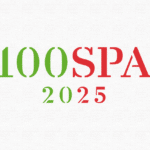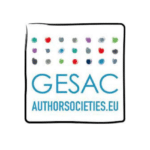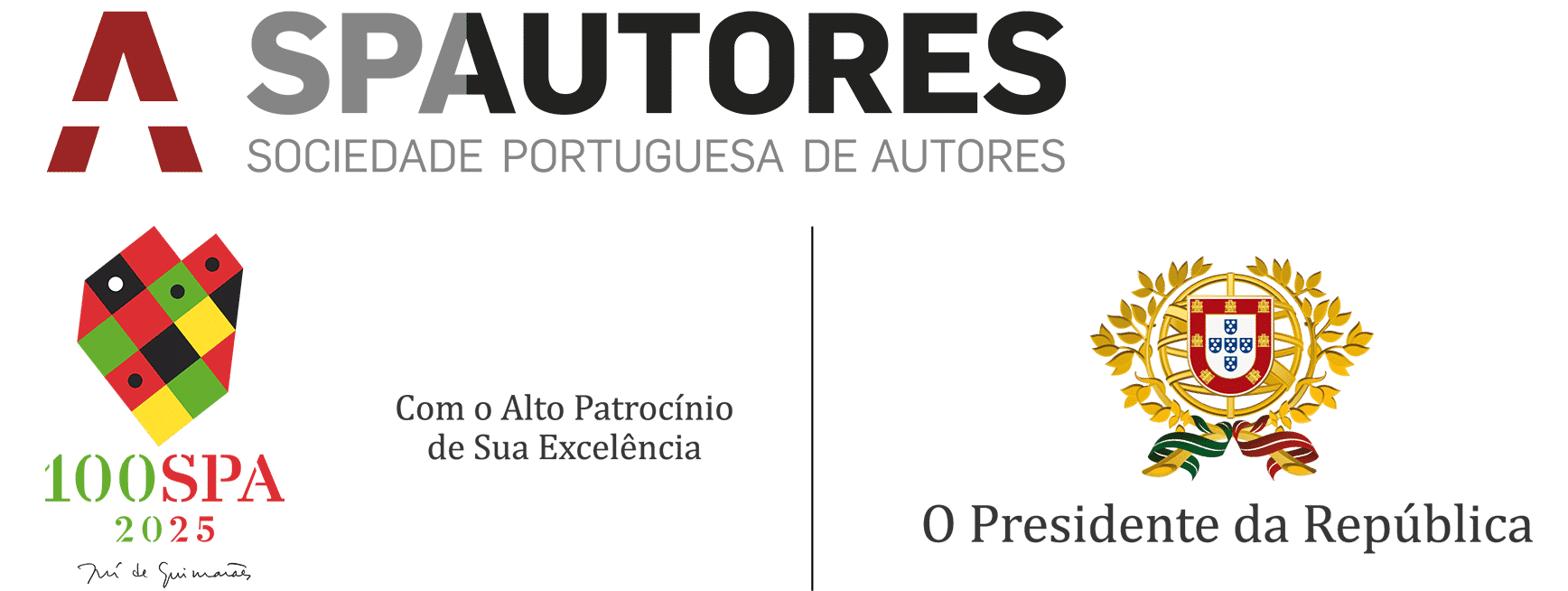The SPA, in an joint effort with the entities representing several creative and information sectors, led a session held today at the Casa da Imprensa to make public an appeal to Portuguese MEPs on the proposal for a Directive on Copyright in the Digital Market.
On September 12, the European Parliament will have the historic opportunity to put an end to an unacceptable situation which will lead to a total reversal of the value chain between culture creators and platforms. Contrary to what many claim to believe, it is not the subsistence of the internet that is concerned but, rather, the survival of the cultural and creative sectors. Ensuring that creators are recognized as having the right to be remunerated for the uses of their creations by digital platforms for commercial purposes.
It should be recalled that SPA, in collaboration with the European Group of Societies of Authors and Composers (GESAC) – in which SPA holds one of the vice-presidencies through the president of the cooperative, José Jorge Letria, – has been striving to clarify and demystify decontextualized and manipulative information conveyed by the opponents of the Directive – the technology giants – and which unfortunately have the support of some political parties and MEPs.
It is on behalf of hundreds of thousands of authors, music and audio-visual producers, Portuguese and foreigners, and hundreds of national, and regional, media companies, that today SPA appealed once again to the vote favorable to the Directive, in the expectation that Europe can continue to be synonymous with democracy, ethics and justice. The appeal to the national MEPs was read by SPA’s administrator, Ms. Paula Cunha, who also conducted the session at the table with the representatives of all the entities (nine) who subscribed the document.
It is essential that all Portuguese MEPs understand the true scope and importance of this cause. In fact, this a cause so strong that today it was able to unite so many entities in the sector. That is why in the plenary session of the European Parliament on September 12 MEPs should vote for Creativity and Justice, transforming Europe in the beacon that the world needs.
Lisbon, August 22, 2018
#MakeInternetFair #MercadoÚnicoDigital
Joint Appeal to Portuguese Members of the European Parliament
We have never seen such a widespread access to cultural goods and information. Today, most Women and Men around the world have access to work, artistic performances and informative content on a scale that was recently unimaginable.
It has never been”consumed” so much music, so much information, so many films, so many texts, so many images, so many works. So much “protected” content, fruit of the work of someone who creates it.
And that Is good.
The main problem, of this new reality, is that the growth of access to cultural goods has been accompanied, in the last decades, by a generalized and global “impoverishment” of all those who create, interpret and invest in cultural goods, as well as a decrease of media revenues, to levels that are already below the sustainability level of these sectors.
As we observe the decline of revenues, of those who really create and produce cultural goods – that are in fact essential for social, cultural and political progress – we witness an exponentially and completely disproportionate enrichment of the great global platforms which, under the euphemisms of “sharing”and “access”, are creating their excessive profits at the expense of creators, sharing their works abusively.
This is an unprecedented phenomenon called Transfer of Value (ToV) that occurs between culture creators, producers and those who take advantage of it to boost their business.
It is clear that no economic activity can subsist, develop and flourish without remunerating who produces.
Culture and information are no exception and the importance of these sectors, for the development of a culture and knowledge society – if not for the democracy development itself – cannot be an excuse for creators “forced expropriation”, instead it should be the guiding principle of public policies that impose – at least – fair and real market conditions for cultural products, if not the encouragement and support of their production.
Europe’s response, which has adopted clear policies of growth and production of digital value in recent years, can only be one: cultural and creative values must be protected. After all, they have been at the heart of the process of European construction and they must be part of a fair and equitable digital single market.
This is a singular moment, and Europe will have the opportunity to be an example and a beacon for the rest of the world.
Despite of a huge disinformation campaign – carried out by organizations whose purpose is to continue enriching under false pretences of free “promotion” of content – what is really in stake in the vote on the Directive on Copyright in the Digital Single Market, scheduled for September 12, is the possibility of finally having a fair remuneration model for creators in a digital environment that reverses this unsustainable state of affairs. It is late, however it may not be too late.
What is also at stake is creating the right conditions for platforms that use user-uploaded content – platforms that have an active role in making that content available – be subject to effective licensing obligations.
In fact, what really concerns the economic giants of the digital distribution – the opponents of the proposal of Directive – is that they will be obliged to pay to copyright holders.
This will put an end to legal uncertainty that has legitimized the misappropriation of the value generated by creation.
It is this legal uncertainty that has allowed these platforms to divert the creation of value, into their own commercial interests, unlike to what happens with licensed platforms which pay fair compensation to the creators.
It is also intended to implement a related right for press publishers, a right already established for the music, film and other industries, in a digital environment, contributing to greater fairness between entities in the cultural sector. It encourages organizations that want to gain added value by reusing or monetizing media content by licensing their creators, allowing the sharing of hyperlinks, and giving journalists the opportunity to be remunerated for the licensing of on-line uses.
Although the above-mentioned facts are the key aspects of the directive, the campaign held by the directive opponents has been deliberately trying to divert the discussion and stir up public opinion with fake censorship ghosts.
They claim that the adoption of the Directive will prevent users from sharing content on those platforms, thereby limiting freedom of expression.
It is totally false!
We recall that the signatory organizations of this letter represent important sectors of cultural and media production for whom freedom of expression is essential.
Authors, artists, producers and mass media will always be at the forefront of freedom of expression, in all its forms.
Moreover, Portugal is a State where legal copyright protection is established in the fundamental law, as an instrument and guarantee of the freedom of “intellectual, artistic and scientific creation”.
Allowing creators and producers of cultural goods to be fairly compensated for their benefits is therefore to defend freedom of artistic expression. Likewise, creating conditions for a fair market for information content is an essential precondition for the existence and maintenance of a free and pluralistic press, a pillar of democracy itself.
However, it should be recalled in particular that: the text resulting from the work of the JURI Committee of the European Parliament does not impose any filtering. The application of electronic mechanisms that prevent the provision of protected and unauthorized content will always be an option for platforms that do not previously obtain the licensing, as they should.
And even in this circumstance, it is clear that there will be no generalized prior “censorship” or “filter”. What will happen is that works previously identified by rights holders and for which the digital platform has not obtained authorization, cannot be made available. It is thus guaranteed that protected works whose availability has not been authorized by its legitimate creators – and only these – cannot be made available by third parties who, not being copyright holders, will only use and make these contents available.
Everything else will remain available, there will be no legal provision to prevent someone from making available, and sharing contents created by themselves, they can fully exercise their own freedom of expression, but obviously not other people freedom of expression.
It is false that there is any “censorship filter”.
The European Data Protection Supervisor has already concluded that the Directive’s text as adopted by the JURI Committee, does not violate any data protection standard and does not impose a general duty to monitor.
Quite the opposite.
The Directive regulates already existing mechanisms of automatic monitoring, implemented at the platforms initiative and, let’s say, without generating any widespread social alarm. In this plan the proposed directive safeguards, in particular, the existence of mechanisms for review and complaint, the legal obligation of such mechanisms allows free use and the possibility of appeal to judicial, or arbitral, bodies to resolve any conflicts. The reading of Article 13 of the proposal, as it is written on JURI Committee report, does not allow any other conclusion.
It should also be clarified that, with the Directive’s adoption, citizens will continue to do exactly as they have done until now, in fact no payment will be requested. It is the responsibility of the platforms to ensure the conditions of fair remuneration, so that, the protected contents can be shared. Users will not be called to pay licensing costs, on the other hand, they will have their acts legitimated on licensed platforms. Individuals’ fundamental rights will be preserved.
This is the true meaning of the text content which, for the first time, will be put to a vote in the plenary session scheduled on September 12.
It was in the name of these principles, and of a common cause to all world creators, that hundreds of Portuguese authors and artists mobilized with the Portuguese Government and the Portuguese Deputies in the European Parliament.
This mobilization, which is part of a movement on a European scale, has already begun to bear fruits, signatory organizations emphasize the important role played by the Portuguese Government when discussing the proposal for a Directive within the Council of the European Union. Portugal’s active contribution has already allowed the adoption by that body of a text for the proposal, in fact for a directive that safeguards, and defends, the creators rights for European and world culture in the context of digital content exploitation.
Members of the European Parliament,
On September 12, the European Parliament will have the historic opportunity to put an end to an unacceptable situation which will lead to a total reversal of the value chain between culture creators and platforms.
Contrary to what many claim to believe, it is not the subsistence of the internet that is concerned but, rather, the survival of the cultural and creative sectors, as we know them today, as well as the future of European culture and values.
It is on behalf of hundreds of thousands of authors, music and audio-visual producers, Portuguese and foreigners, and hundreds of national, and regional, media companies, that we are here leaving our call for you to vote in favor of the Directive, expecting that Europe can continue to be synonymous with democracy, ethics and justice.
SPA – Portuguese Society of Authors
GEDIPE – Association for the Collective Management of Copyrights and Cinematographic and Audiovisual Producers
FEVIP – Portuguese Association for the Defense of Audiovisual Works
AFP – Portuguese Phonographic Association
AMAEI – Association of Independent Musicians, Artists and Publishers
AUDIOGEST – Association for the Management and Distribution of Rights
API – Portuguese Press Association
VISAPRESS – Media Content Management, CRL.
PMP – Plataforma de Media Privados





